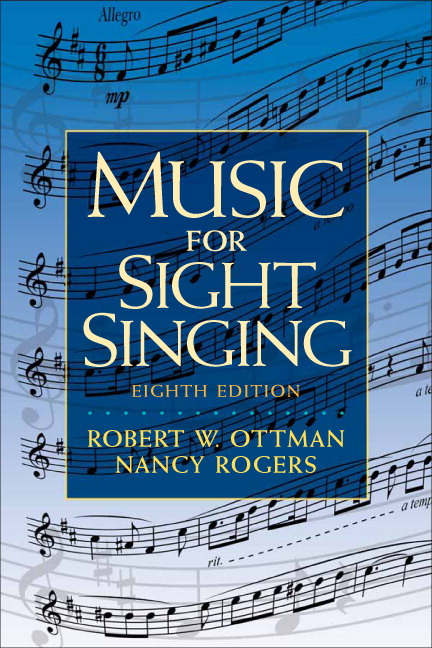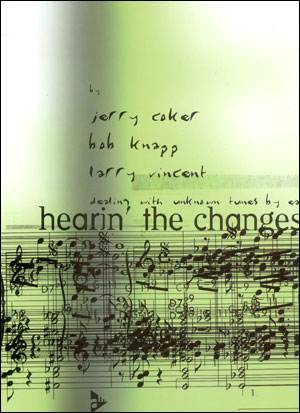Four Things I Wish I Would Have Done in Music School
Growing up, I remember the advice my parents would give me generally falling into two categories: 1) Things I should do because that’s what they did and it served them well, or 2) Things I should do because they didn’t do them and wished they had. As a studio teacher now I find myself dispensing similar advice; with a few years separation from my experience as a student and 3+ years at UW-Eau Claire, I’m able to see a little more clearly what processes really benefitted my musicianship the most, and what elements I neglected and now find myself belatedly scrambling to try and catch up on as I enter my 30’s. A conversation with my pal Dr. Bennett Wood, newly-minted Director of Jazz at Mineral Area College near St. Louis, about this got me thinking about it this weekend. So here’s a hastily-assembled and not comprehensive collection of four things I wished I had taken more seriously in my undergraduate years, brought to you by a sublimely brown sugar-y single origin Huehuetenango Guatemala espresso from Kin Kin Coffee Roasters at Johnson Public House in Madison, WI.
Take freshman-level aural training and sight singing seriously
These are not necessarily going to be listed in order of importance, but if they were, this one would definitely still be first. This is huge! Huge. V important. I think in my case, my relative indifference towards “classical” ear training was borne out of some weird, undeserved jazz snobbery. “Ugh, I practiced COLTRANE CHANGES last night, bro, I don’t need to be singing some lame diatonic melodies out of the Ottman.” So dumb. Bobby Watson used to say “Launching a rocket into space began with 2+2.” Which meant that basic math is the building block to algebra, which is the building block to geometry, and then calculus, and then… you get the idea*. I tried to circumvent some of the building blocks of ear training because I felt like I was too cool for it. This neglect cost me deeply, in so many ways – my ability to learn and retain melodies, my understanding of how to drive a phrase in my classical playing, composing, even my enjoyment of consuming music as a listener. I’m still catching up, to be honest! Your ears are everything in music, and you really can’t do anything effectively as a performer if you don’t have a fundamental base of aural skills. Trust me, guys: don’t sleep on (or in) your freshman aural skills class. You’ll regret it your entire life.
*I may or may not be cutting this comparison short because I don’t really know what’s after calculus. Uh, yeah – I probably should have taken my high school math classes more seriously, too.
Start approaching contemporary music whether or not I felt like I was “ready” for it
In the concert saxophone world, new music is king. Every NASA conference doubles as a new music festival, and all of the leading performers are doggedly commissioning composers to write works for the instrument. That saxophonists don’t have full-time orchestra positions to audition for is a double-edged sword; the plus side, I think, is that the canon of saxophone music is always evolving at a breackneck pace in relation to other instruments.
My friend Nick Zoulek visited UW-Eau Claire last year to give a solo recital and clinic. Nick is a champion of contemporary saxophone music as a performer, composer, and pedagogue. During his presentation to the studio at UW-Eau Claire, he talked about how strongly he feels that contemporary music should be taught in concert with standard repertoire - as opposed to seeing it as something you spend years working up to and save for graduate school. I thought this was totally on point, and it made me self conscious about my own teaching (in a good way) and how it’s rooted in my own experience as an undergraduate (not in good way). When I was coming up, I always felt afraid to be curious about and approach contemporary techniques* and play new compositions, because I viewed them as inherently more exotic, difficult, or requiring a level of maturity I had yet to attain, than standards. In many cases this is true, but in many others, the skills needed to approach contemporary music are only a little different, as opposed to more demanding. I certainly would never suggest that we skip over the well-worn chestnuts, but I wish that I had substituted a few pieces written in the current decade for yet another work written by a French composer in a two-decade span, when I was younger. My studies weren’t really representative of the professional standard and current performance practice in classical saxophone, because I kept waiting for when I would feel “ready” to get my slap tongue together, and my circular breathing, and and and…
*Nick astutely observes that the term “extended techniques” is a bit of a misnomer, since it implies that they are somehow more auxiliary than others.
Well, here’s the thing – I know now that I’ll never fully feel like I’m happy with my sound, and my pitch, and other fundamentals. That’s a lifelong battle that never ends. Had I been programming new music on my undergraduate recitals, I would have spoken that language much more fluently at a younger age.
Learn jazz standards with Roman Numeral analysis, and play them in different keys
One of my big pushes at UW-Eau Claire has been to encourage and foster a jam session culture, and preach the importance of memorizing standard jazz repertoire. Something I’m constantly preaching is that most standards are comprised of the same stock chord progressions. If you learn what those individual progressions sound like, and know how to approach them in different keys, your ability to learn, retain, and address harmony grows exponentially. Jerry Coker’s excellent text “Hearin’ The Changes” was a revelation for me, when I finally cracked it open about 7 years ago. I always dutifully practiced patterns and vocabulary in all keys, but the importance of working on entire tunes in different keys escaped me until I was much older. Now, a V7/V, or the Sears and Roebuck bridge sticks out to me like a sore thumb. If I had done the extra work to start recognizing these stock progressions, and shedding them in other practical keys if not all 12 keys, my ability to absorb standards would have been hugely expedited; instead of spending hours and hours and hours trying to practice connecting each individual chord without any understanding of the larger picture, I would have been able to quickly identify, aurally, important components in a tune and the musical picture would have come into focus in a much more bulletproof way. Practicing standards only by trying to memorize each individual chord is like trying to practice basketball by only playing pickup games. You have to break the game down into smaller compartments – free throw shooting, conditioning, boxing out, etc. – and the composite of all of them will make the actual game come easier.
Put my name and face in front of influential people long before I felt my ability warranted it
My face.
I always rail against what I call “Networking with a capital N”. I’m talking about people that always talk about making “connections”, whose idea of a “connection” is introducing themselves at a gig, or a professional conference, and immediately scheming on how they can use you to further their professional careers. You can sniff this out a mile away. It’s amazing to me how many people in music will talk about a prominent musician or clubowner or teacher, using their first name like they’re pals, and then when you pry a little further you find out that “connection” is very flimsy at best. They’re a friend of friend, or someone they shook hands with once. Real “connections” take a lot of time, sincerity, and maybe most of all, familiarity. When I left Kansas City for graduate school in 2010, I was really frustrated that I wasn’t gigging as much as I thought my playing warranted at the time. And, based on musicianship, I DID deserve to be getting a slice of jazz gig pie. I moved to Cincinnati in a little bit of a huff, thinking things would be different – surely in another city, there would be more of a meritocracy and I would be able to work just because I was a good player. Well, things weren’t any different at all. I booked a gig in my first month or two there, and like five people came. I went to a couple of jam sessions and tried to sit in with local pros, and they were always nice and complimentary, but I wasn’t getting any calls for gigs as a result. What I learned over time is that getting gigs and other opportunities often just requires being around for awhile. Not even necessarily hustling, or actively seeking out opportunities all of the time – just being around. Being a good hang, not trying too hard, being “on the scene” by just showing your face and saying hello every once in awhile, over the course of a few months or years. A ton of teaching and performing gigs and jobs involve spending extended amounts of time with colleagues. If I have a gig that’s four hours long and has three 15 minute set breaks, plus a half hour set up and a half hour tear down, that’s about two hours that I’m going to be spending making small chat with somebody. In a bigger city especially, there are likely going to be 20 different numbers of people in my phone who are roughly equally capable of handling the gig, but I’m probably going to call the person who I most want to spend two hours of down time with. What I had done was wait until I feel like my musicianship was “worthy” of being a professional, and then started going out to shows, trying to sit in and meet people. So as a result, there was a lag time – I had arrived to a certain extent musically, but I hadn’t earned the trust and familiarity of older, working musicians yet. It was really frustrating. The better approach is to start going out and saying hey without concerning yourself so much about making “connections” or wondering if you really have any business talking to so-and-so. Just be friendly. Introduce yourself again if you’re not sure if that influential person will remember you. Then when your playing catches up, you will have already laid a foundation.
OK – what else should we add? Like, share, leave a comment below. Thanks for reading!



